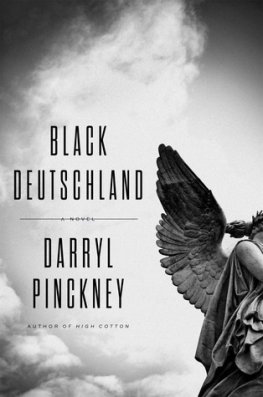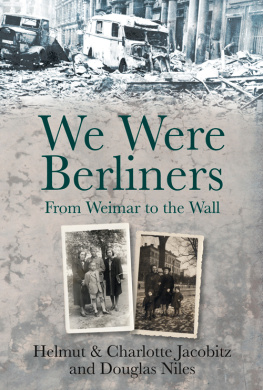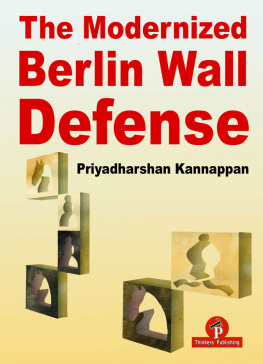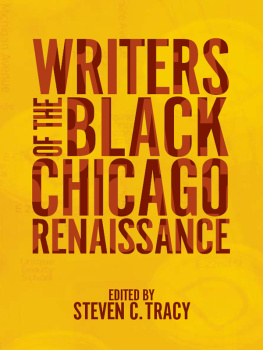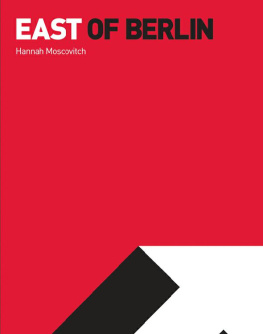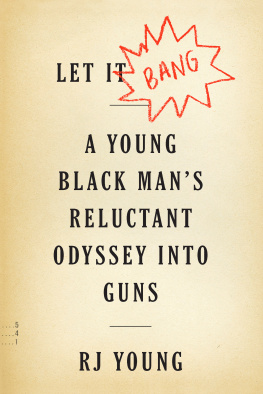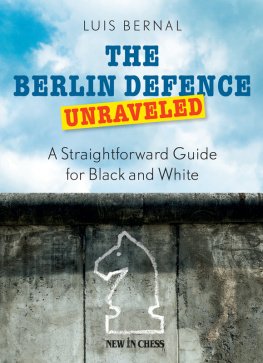Darryl Pinckney
Black Deutschland
Make sure the moon in the grotto is turned on.
Ludwig II of Bavaria
It doesnt always start with a suitcase. Sometimes things begin with the wrong book. Berlin meant boys, Isherwood said. Fifty years after his adventures among proletarian toughs, Berlin meant white boys who wanted to atone for Germanys crimes by loving a black boy like me.
The first time I saw the Mercedes-Benz star revolving over Europa Center, West Berlins triumphant commercial hub, I knew I was home. I had a room in a hotel near the main West Berlin station, the sort of place where burned-out hippies beat up their girlfriends. I didnt even turn on the light as I tossed in my bag. I hit the heavy-named streets, delight in my stride. You would have thought Id arrived in Venice. But Id read quite a bit about how the not-old-for-Europe structures of West Berlin, stripped of decoration, felt squeezed by the postwar functionalism of the here-to-replace-what-was-unremembered.
I pranced to the central shopping mall. West Berlin was the outpost of Western prosperity, the floating island of neon and pleasure deep inside Communist territory. This was its core. Id read that after the construction of the Berlin Wall, both sides wanted to distract their populations from the border cutting through the heart of the capital. Each side created its own new city center away from the Wall. East Berlin had Alexanderplatz, dominated by the giant needle and revolving restaurant of a television tower visible for miles. West Berlin had Europa Center, a wall of steel and glass, a courtyard of shops and offices nestled beside an office tower, the only one of its kind in the city when erected in 1961. It blocked out, psychologically, the wall of mortar and wire that ran parallel, along the same north-south axis, dividing east from west.
The standing rectangle of office tower looked across the Tiergarten, a vast park that had become as quiet as No Mans Land because of its proximity to the Wall. At any hour, the Tiergarten was filled with boys, silently cruising under the cover of postwar linden or chestnut trees. The tower block was grounded in a narrow plaza. The past sat on the shoulder of everything you saw in Berlin. The ruin of a Romanesque Revival spire marked one end of the plaza, chiding the ugly modern octagon of beehive-blue glass next to it that was built as the new church and also as a memorial to the old one. Had there been traffic, it would have flowed around this plaza. There the Kurfrstendamm begins, West Berlins show street that makes a humorless diagonal through the city, along the route Prussian kings took to their hunting lodges.
In the middle of the plaza a round fountain of big beige granite dollops is still running. My very first night in Berlin, the people hanging out around the fountain, young or just long-haired, looked like theyd met at the train station a few minutes before and had walked over to conclude unsavory transactions. Young couples, families of shoppers, and groups of moviegoers kept their distance, sitting under umbrellas at the beer, cola, and coffee tables at the other end of the plaza.
The company emblem turned in the friendly sky. Behind the red Mercedes-Benz star, perfectly in line with it as I looped back around, was a pink August sun just beginning to quit.
This was the start of the awful 1980s. I saved money from my second job, a telephone-marketing gig, for the few weeks I could afford to spend in Berlin every summer. Just before Chicago flipped out because of AIDS Terror, I was getting away, but every summer coming back too soon, broke and heartbroken over some kerchiefed bartender and feeling superior to everything about my hometown. I was leaving pieces of myself in Berlin, like a bird carrying its feathers one by one to a distant nest. In the Cold War days, Berlin was far away, a disco ball behind the Iron Curtain.
I smoked menthols on bar stools, snorted lines in paperless stalls, and threw up on corners all over the Near North Side, protected by my dream of eventual escape. Though born in Chicago, I was just passing through. Whatever had happened in the Golden Rectangle, whatever was going down on the South Side did not matter. I may have fallen apart in the city of my birth, but the city of my rebirth would see me put back together again. My real life of the happiness I deserved would begin once I got over there and stayed. What had not happened in Chicago would finally happen in Berlin, the city that owed me and loved my fantasies.
I was idiotic during my first visit to Berlin. I bought drinks three nights running for a sour-smelling old man who told me he had inherited from his father the most rare footage in Europe, twenty-seven seconds of Nijinsky dancing. Of course the film was held in a bank. Hed invite me special to see it.
It used to be Aimez-vous Paree? that the black GI ran to, my dad said, rolling slowly in his chair, up to and back from his desk. But you and your cousin cant get enough of that Sprechen Sie Jive?
I didnt tell him that because Id been in a bar all day Id snored through the Berlin Philharmonic concert that my cousin had taken me to. I forgave before anyone else did the young blind prowler I had been, who drank as though Weimar culture could be got through the bottle.
After those few summers of desperate rehearsal, tourist make-believe, I was recently sober and alone in a train compartment about to be locked tight for the border crossing between the fast-driving, exhibitionist German Federal Republic and the paranoid German Democratic Republic, with its harsh fuels. Id left Chicago behind for good. I was inordinately proud of my one-way ticket. Id become that person I so admired, the black American expatriate.
* * *
Branches of the same people who are black in the valley are white on the mountain, Frederick Douglass said. The beautiful hair of the Nubian becomes frizzled as he approaches the great Sahara, he added.
* * *
Mad, unknowable people were hijacking planes over Europe and setting off bombs at the Frankfurt International Airport the summer I came back to West Berlin ready for adult life, willing to register with the police. My new job came with what I considered glamorous international paperwork. The address I was going to wasnt far and I could nod to the Mercedes-Benz star I always let it know when I was back in town as the taxi turned in the opposite direction, onto the Kurfrstendamm.
The city arched its back in the sandy heat. My cousin Cello and her husband and their four children and a nanny from Stratford-upon-Avon lived not far from the seedy Zoo Station, but their address was historic, bourgeois Berlin. The street doors were heavy polished oak, and the front staircase wide slippery oak. Their apartment had four balconies; it was an apartment that went on and on, around the whole side of the corner building, with high ceilings, even in the maids room, where, as I discovered, Cello intended to install me.
I tripped over my baby, Cello said when she opened the door. She bounced a shrieking brown toddler with beautiful long curls in her arms as two other gorgeous little honey-colored boys reached up and tried to tickle his toes. Remember peanut brittle? she asked. Her boys had big eyes.
I shrugged and Cello cupped the screaming head, turning her baby away from my raised hand. The long, sleeveless pale-blue satiny dress she wore looked like a nightgown. She had on silk stockings, in August, and glistening black-and-white saddle oxfords with rounded toes.
To me, she looked like the music she studied, mostly because of her hair. She was a throwback to our great-grandmothers locks, got from some slave master. Instead, wed say Cherokee. Her hair came from our Indian blood. It was the only thing she had on her sister, her lack of acquaintance with the hot comb. She didnt have to suffer for white-girl-like hair. Her nap was soft. She piled her amazingly long, undulating black hair on top of her head or dismissed it over her neck with wide combs. Her attitude toward her hair was as striking as its abundance. Look, okay, I have good hair, as it used to be called in Negro America. Fine, not frizzy. But Im not going to let it mean anything to me.

